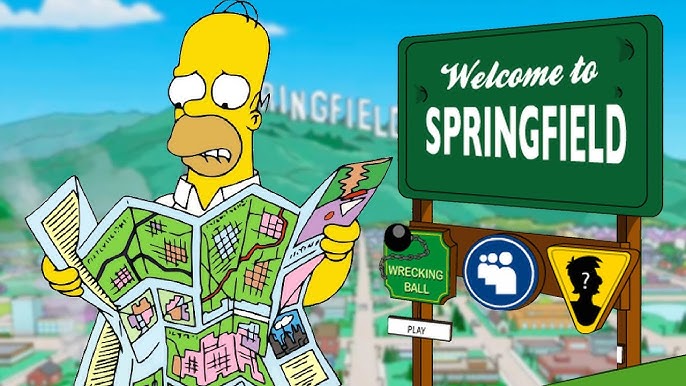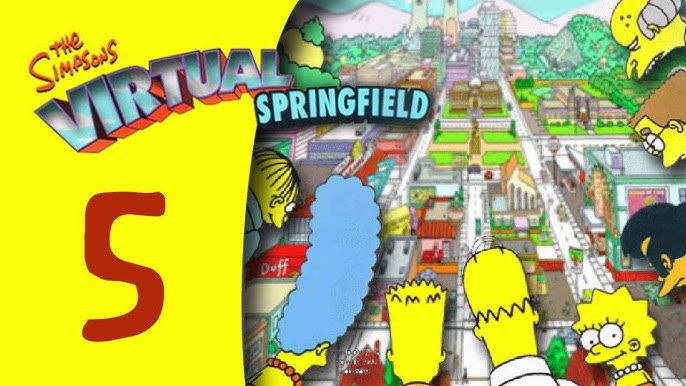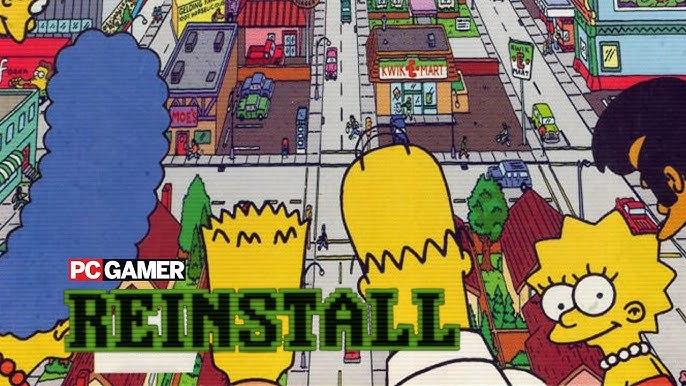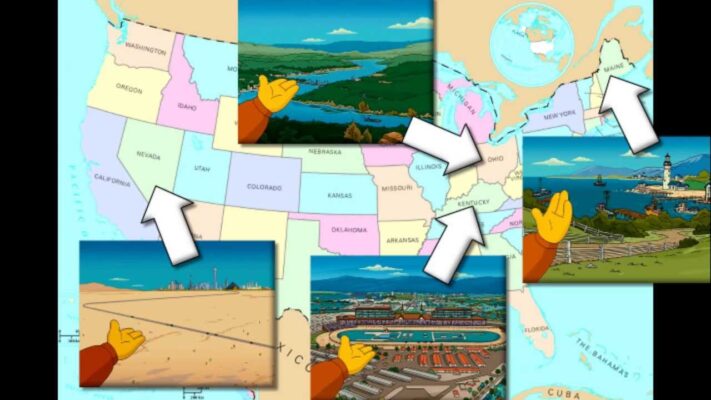Movie News
Which Springfield is The Simpsons?
The Simpsons is one of the most iconic and enduring animated series, beloved for its humor, satire, and well-crafted characters. One intriguing aspect of the show is its setting: Springfield. However, many fans and viewers wonder, “Which Springfield is The Simpsons?” This question delves into the fictional nature of the show’s setting and explores the various clues and references that hint at its real-world counterpart. Let’s find out about this topic with Alibaytoon.
Which Springfield is The Simpsons? Springfield: A Fictional Town
In The Simpsons, Springfield is depicted as a quintessential American town where the Simpson family navigates their daily lives and interacts with a vibrant cast of characters. This choice of setting is both intentional and strategic. By selecting the name “Springfield,” the creators—Matt Groening and his team—capitalized on its widespread use across the United States. The name “Springfield” appears in over 30 cities and towns across the country, making it an ideal representation of any generic American town. This universality allows the show to appeal to a broad audience, as it evokes a sense of familiarity and normalcy.

The Power of a Common Name
The use of such a common town name helps to anchor the series in a place that feels both specific and undefined. The decision to use “Springfield” reflects the show’s aim to satirize universal experiences and societal issues rather than focusing on the quirks of a particular location. This choice allows the show to address themes that are relatable to viewers from various parts of the country, creating a shared experience among its audience.
Building a Unique Yet Universal Setting
Despite its generic name, Springfield is crafted with a rich tapestry of unique and memorable locations. From the Krusty Krab, which symbolizes consumer culture and fast food, to Moe’s Tavern, a staple of the town’s social life, the show’s setting is both familiar and distinctly its own. Each location within Springfield contributes to the show’s humor and social commentary, reflecting various aspects of American life. The town’s diverse locations help to create a sense of place, while its name remains a symbol of broader, more universal experiences.
Flexibility in Storytelling
The flexibility of Springfield’s location plays a crucial role in the storytelling of The Simpsons. The show’s creators intentionally leave Springfield’s geographical position ambiguous, allowing them to incorporate various elements of American life without being constrained by a specific locale. This flexibility is evident in the show’s numerous references to nearby states, geographic features, and cultural landmarks. The vagueness surrounding Springfield’s exact location enables the creators to craft stories that address a wide range of topics, from local politics to national issues, without being tied to a particular region.
Enhancing Satirical Impact
The ambiguity of Springfield’s location enhances the show’s satirical impact. By avoiding a specific geographic context, The Simpsons can deliver commentary on societal norms, political issues, and cultural phenomena with greater freedom. This approach allows the show to address diverse topics in a way that resonates with viewers from various backgrounds. The generality of Springfield serves as a canvas for the show’s critiques and observations, making its satire more widely applicable and impactful.
Cultural Reflection
Springfield’s role as a fictional town also reflects broader cultural themes and societal trends. The show’s portrayal of Springfield as a place with both mundane and exaggerated elements provides a lens through which to view the complexities of small-town life. This depiction helps to shape viewers’ perceptions of American towns and their inhabitants, offering a blend of humor and insight into everyday experiences. The town’s setting becomes a cultural touchstone, influencing how audiences think about community life and the American experience.
In summary, Springfield’s designation as a common American town name, combined with its rich and varied setting, allows The Simpsons to deliver universal satire and relatable storytelling. The town’s flexibility in location and its distinct yet generic characteristics enhance the show’s appeal and effectiveness in commenting on American life.
Clues About Springfield’s Location
While Springfield is never explicitly identified as being in any particular state, several clues throughout the series provide hints about its geographical setting. For example, in various episodes, there are references to Springfield’s proximity to other states and notable landmarks. However, these references are often inconsistent, reinforcing the idea that Springfield is meant to be a stand-in for any typical American town rather than a specific location.

- The State of Springfield: In the episode “The Springfield Connection” (Season 6, Episode 25), there is a brief mention of the town being located in a state with 49 others, suggesting that it is situated in the central part of the U.S. This vague reference supports the notion that Springfield is intended to be a generic representation of an American town.
- Geographical Clues: Throughout the series, there are occasional hints about Springfield’s geography, such as its proximity to the coast and the mention of neighboring states. For example, in the episode “Bart Gets an F” (Season 2, Episode 10), Homer refers to a neighboring state, suggesting that Springfield is part of a larger regional context.
- Cultural References: The show often incorporates various cultural and regional references that align with different parts of the U.S., further reinforcing the idea that Springfield could be anywhere. These references contribute to the show’s satire of American life and provide a broad commentary on societal norms.
Springfield’s Ambiguity and Satirical Purpose
The ambiguity surrounding Springfield’s location is a deliberate choice by the show’s creators. By keeping Springfield’s exact location vague, The Simpsons can explore a wide range of topics and issues relevant to American society without being tied to a specific geographic context. This flexibility allows the show to address various social, political, and cultural themes with greater freedom.

The show’s satire benefits from this ambiguity, as it enables the writers to craft storylines and jokes that resonate with viewers from different regions. The generic nature of Springfield allows it to serve as a stand-in for any town or city, making the humor and commentary more broadly applicable.
The Simpsons’ Springfield is intentionally left ambiguous in terms of its real-world location. The show’s creators chose the name “Springfield” because of its commonality across the United States, allowing the fictional town to represent any American community. This deliberate vagueness enhances the show’s ability to satirize various aspects of American life and culture. Whether you’re a long-time fan or new to the series, Springfield’s elusive nature adds to the charm and universality of The Simpsons.

For fans of The Simpsons looking to celebrate their favorite characters and moments from the show, be sure to check out the exclusive Simpsons Merchandise available at Alibaytoon Store! From T-shirts to mugs and more, Alibaytoon has a variety of items to show your love for Springfield and its memorable residents.
